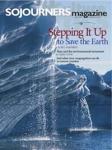Conservatives nationwide have been clamoring for tough ID requirements to stop individual voting fraud. But very few cases of the sort of fraud that would be prevented by strict ID rules have been uncovered, and voting rights advocates say that millions of Americans lack the forms of identification the new laws would require. The U.S. Election Assistance Commission (EAC) hired Tova Wang, a progressive, and Job Serebrov, a conservative, to research voter fraud. The Wang-Serebrov May 2006 preliminary status summaries said there "is widespread but not unanimous agreement that there is little polling place fraud, or at least much less than is claimed."
The EAC, however, refuses to release the final Wang-Serebrov report. Instead, the EAC has responded to media inquiries by sending an EAC-authored report titled "Election Crimes," which contains a conclusion opposite to Wang and Serebrov's summary. Freedom of Information Act requests and congressional demands for the Wang-Serebrov report have gone unheeded. Contractual requirements prevent Wang and Serebrov from commenting, but a Serebrov e-mail message obtained by The New York Times suggests that the two researchers resisted pressure to conform their results to political expectations.

Got something to say about what you're reading? We value your feedback!